It was I think simply a coincidence that in the first few days of June I covered four protests by cleaners. Cleaners are low paid all through the year, and the struggles by their unions to get a living wage – specifically the London Living Wage, which reflects the higher living costs in the capital – continues throughout the year.
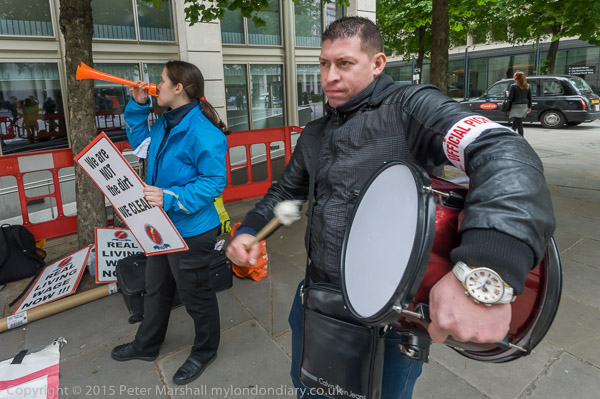
In the City itself, where some of the wealthiest companies in the world have their offices, many begrudge paying the people who clean their offices enough to live on – and cleaners often have to work up to 60 hours a week at several jobs to get by. Often they have to get up to go to work in the middle of the night, perhaps at 2.30 or 3am, to travel long journeys to work by the infrequent buses which run at these early hours.
Of course these businesses don’t want to be seen paying employees poverty pay or denying them the kind of decent pensions, sick pay and holidays that most of us expect from employers – so they attempt to save their reputations by getting other companies to actually employ them. Out sourcing their dirty work.
But the cleaners and their unions refuse to accept this abnegation of responsibility. They make it clear to companies such as Capita Property & Infrastructure Ltd (previously Capita Symonds) that they cannot ignore the responsibility they have towards the people who keep their offices clean by getting Mitie to actual employ them. And they do so by going to the offices and showing them up in public with noisy protests. It ain’t just money. Cleaning companies cut costs by paying workers badly and they cut cost by paying the people who manage the workers poorly too – and appear to encourage the poor staff they get through low wages to treat the workers badly. Most seem to have a culture of bullying and of failing to properly care for the health and safety of their employees.
At Capita, the workers also allege racism, with African workers having been singled out for redundancies and cuts in hours, and other trade unionists including RMT Regional President Glenroy Watson and NSSN Chair Rob Williams came to speak in support of their union, the CAIWU, while others sent messages of support.
Capita Cleaners strike against racism
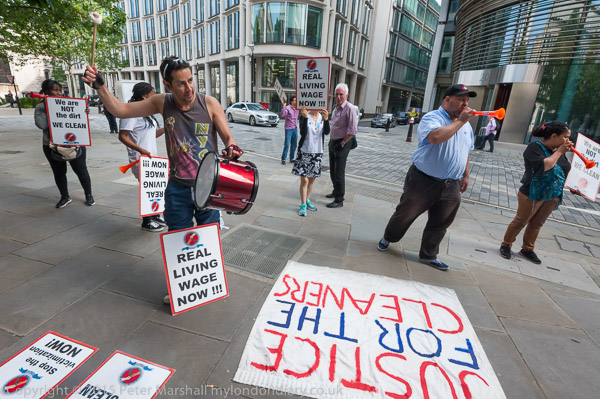
The cleaners returned the following week to continue the protests, and I was there I think for the third time to photograph them.
Capita Racism Protests Continue
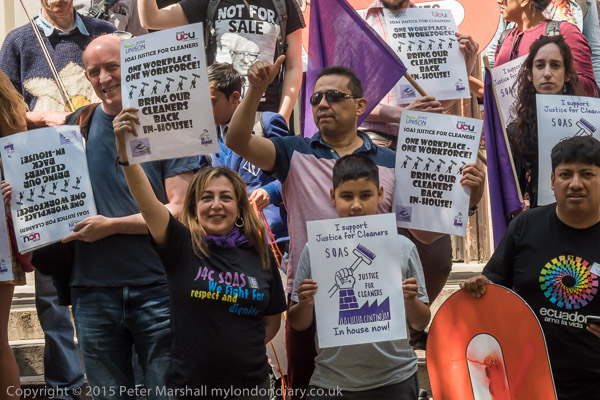
At SOAS, one of London’s best known universities with an outstanding reputation around the world, cleaners have been campaigning for ten years and with some success. They get paid a living wage, but are still campaigning, supported by students and staff. They demand to be taken in-house, to be employed and managed by SOAS rather than by cleaning contractors, who change every time the SOAS contract comes up for renewal.
SOAS came close to agreement earlier in the year, and appear to have agreed in principle, but still awarded the contract to yet another cleaning contracotr, though saying they will in time bring the cleaners in-house. But the cleaners don’t wnat future promises, they want action now.
10 Years of Cleaners’ Struggle at SOAS 100
As well as marking 10 years of struggle by the cleaners, the day was also a day of celebrations by the university, with SOAS celebrating its centenary. As a part of this they were to bury a time capsule in a hole dug for the occasion, to be dug up again in another hundred years.
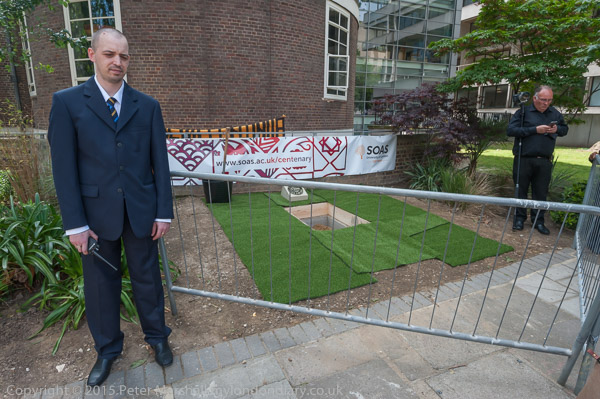
I should really have hung around to watch the ceremony, as one of the things that time capsule was to contain was one of my photographs, of an earlier protest here, with a text by Ed Emery, the fiddle player in my picture.
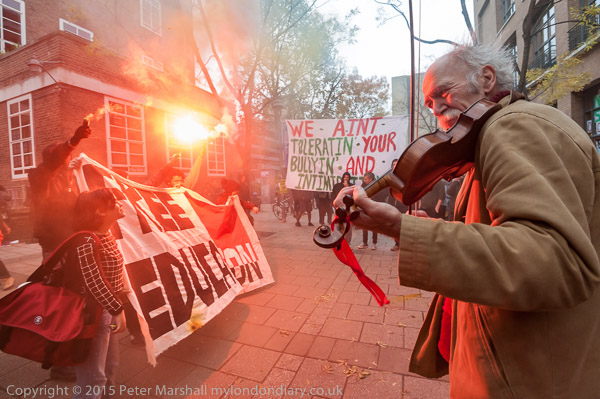
A couple of days later I was back in the City for another protest involving cleaners, this time by the UVW union. The offices at 100 Wood St are managed by CBRE and mainly let to Schroders and J P Morgan, but the cleaners are employed by contractor Thames Cleaning and Support Services Limited. Rather than negotiate with the union, Thames went to the HIgh Court to try and get an injunction to try and stop them striking over poverty wages and unfair sackings. They didn’t succeed in stopping the strike, but the court did impose strict conditions on picketing and protests by the cleaners – and they were charged costs which, at around £11,000, were far more than the union could afford.
Fortunately many who were disgusted at the action by Thames and the court’s decision came to their aid with donations, and the strike went ahead. But the injuction meant that any protest had to be at least 10 metres away from the doorway.
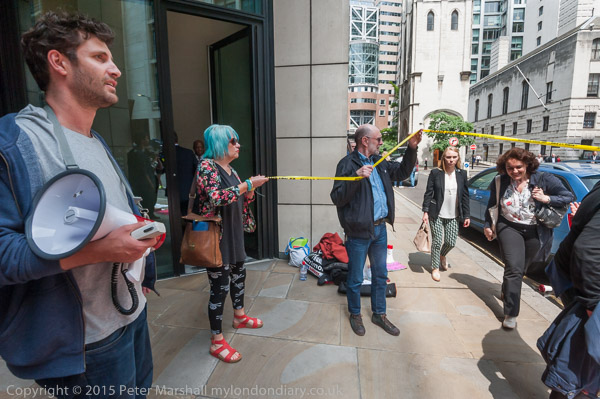
In the picture Class War are measuring out that 10m with a length of yellow hazard tape, while a pedestrians walk under it along the pavement.
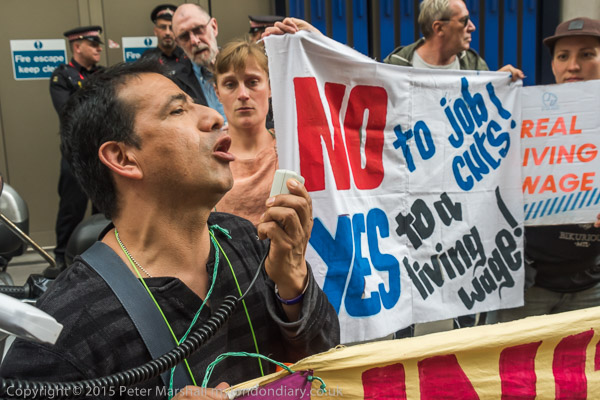
The strike is said to be the first such strike in the City of London, and continued for the rest of the month, with one of the strikers vowing to go on hunger strike. It was a long battle, but after 58 days a successful agreement was reached and the action stopped.
UVW Cleaners on Strike in City
Continue reading Cleaners protest






